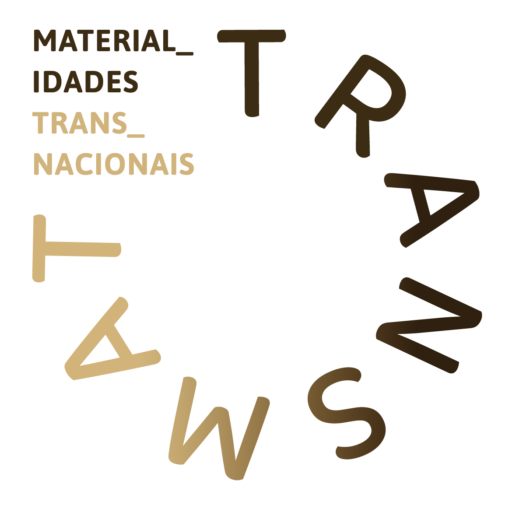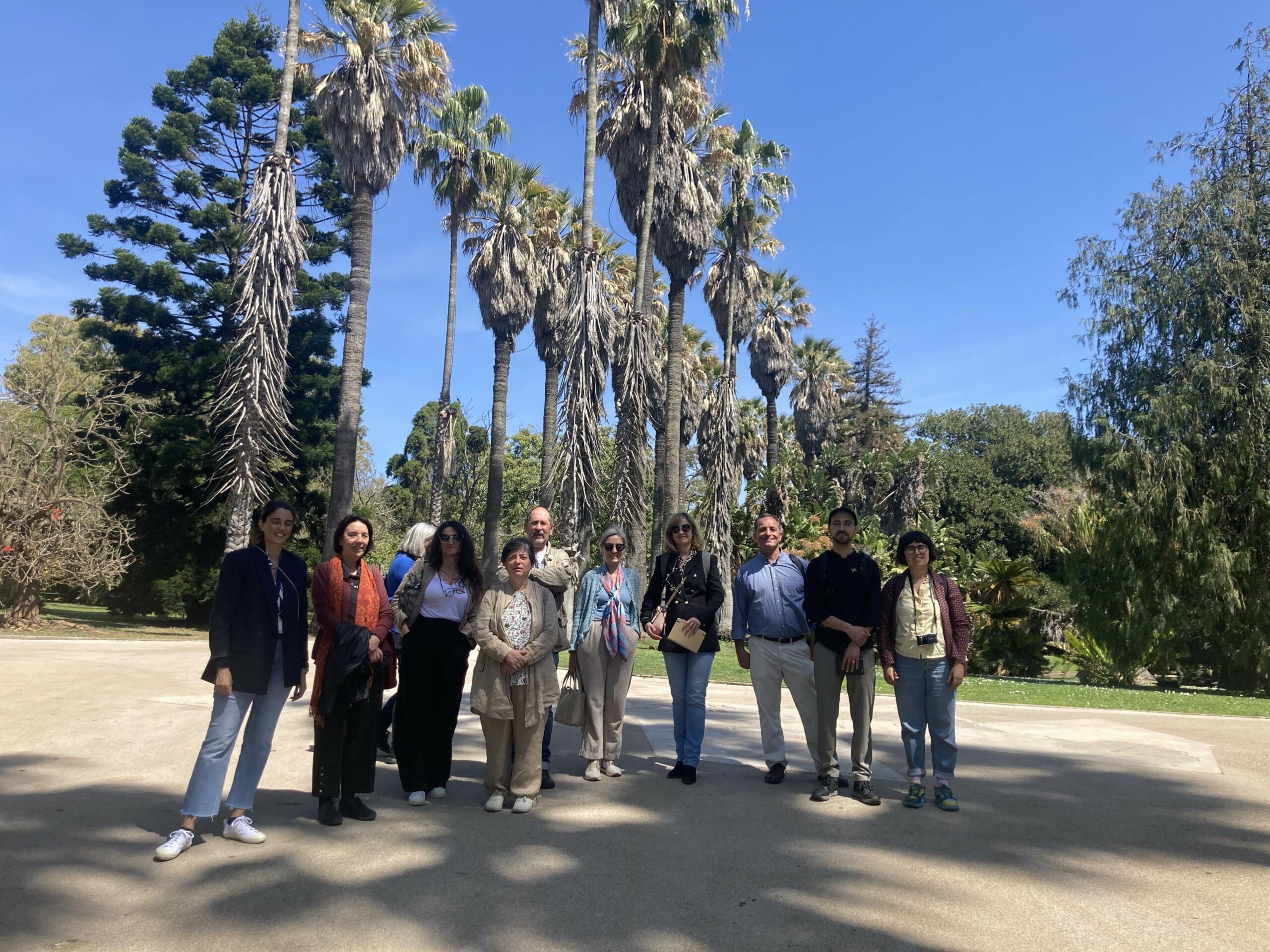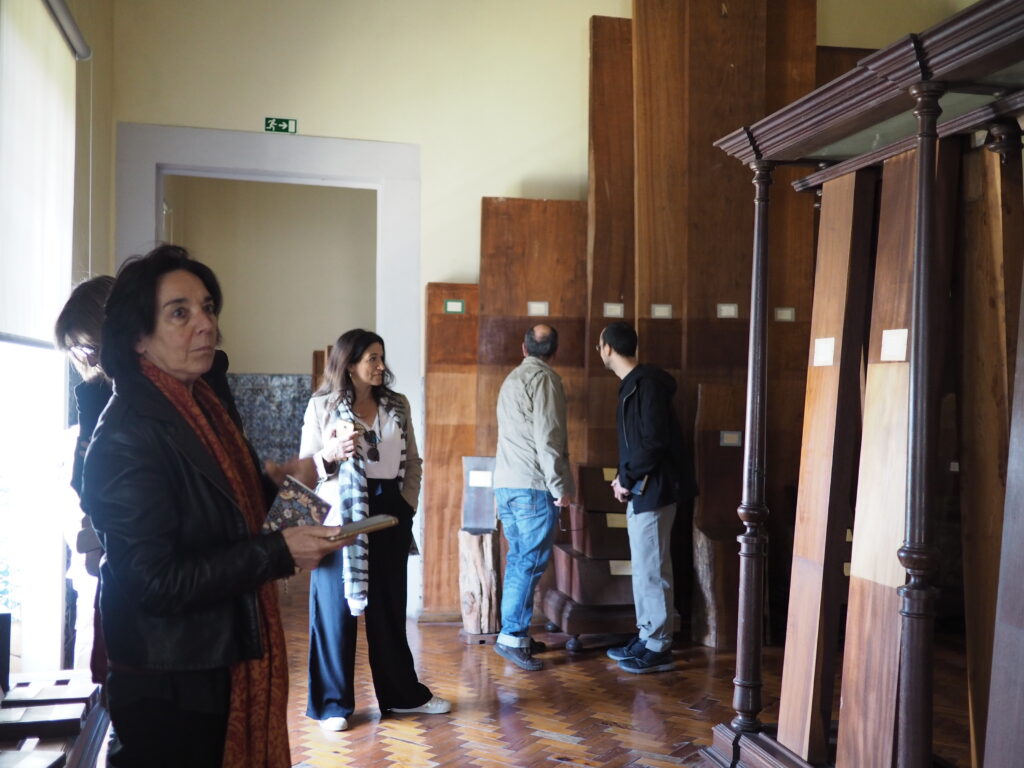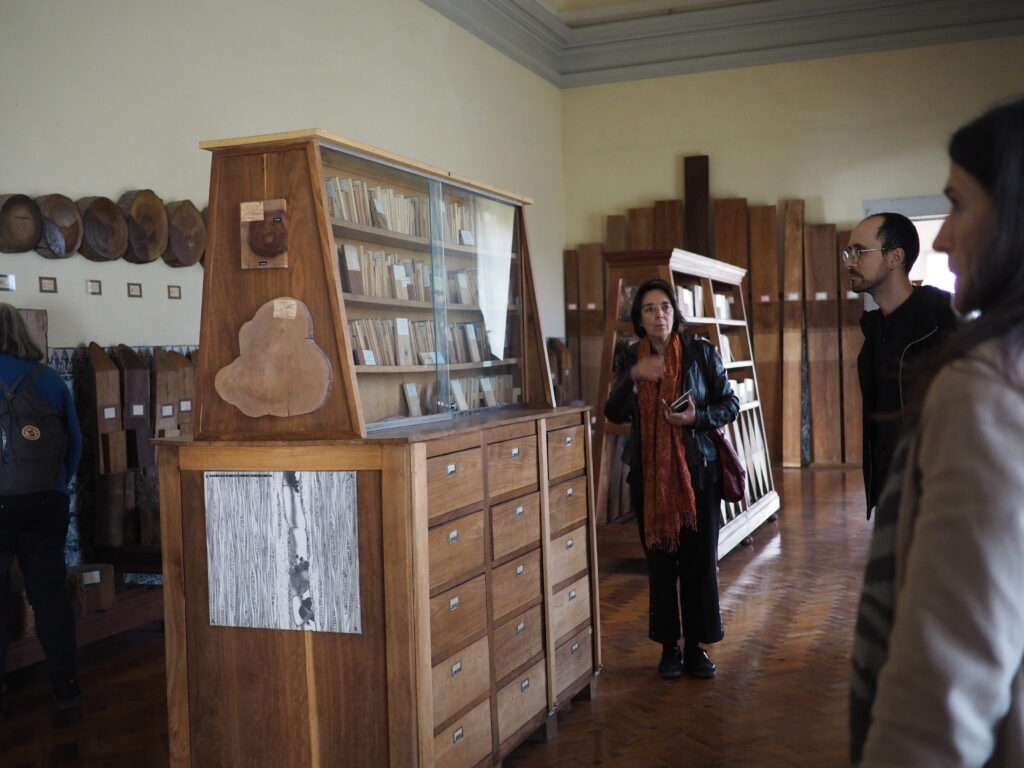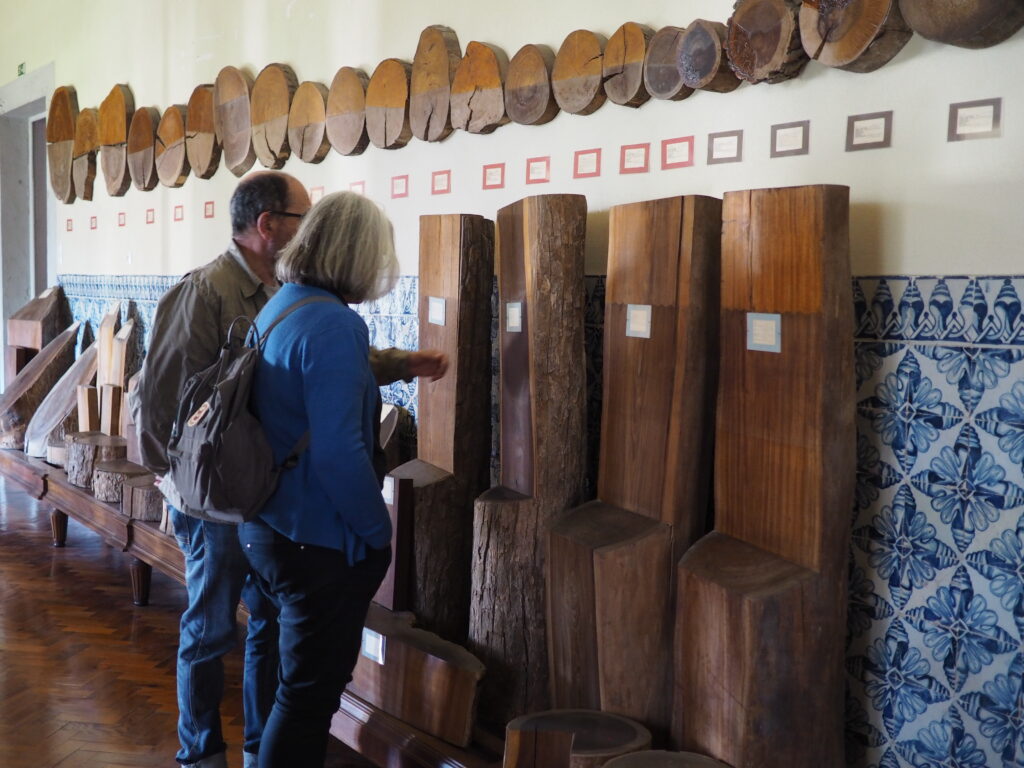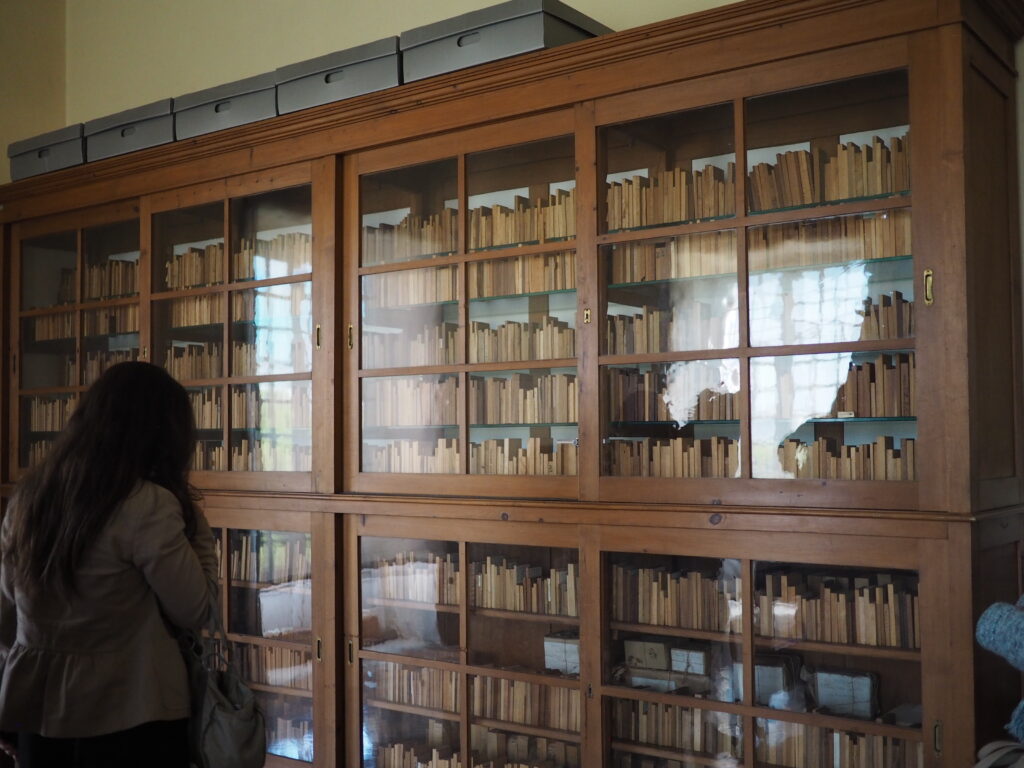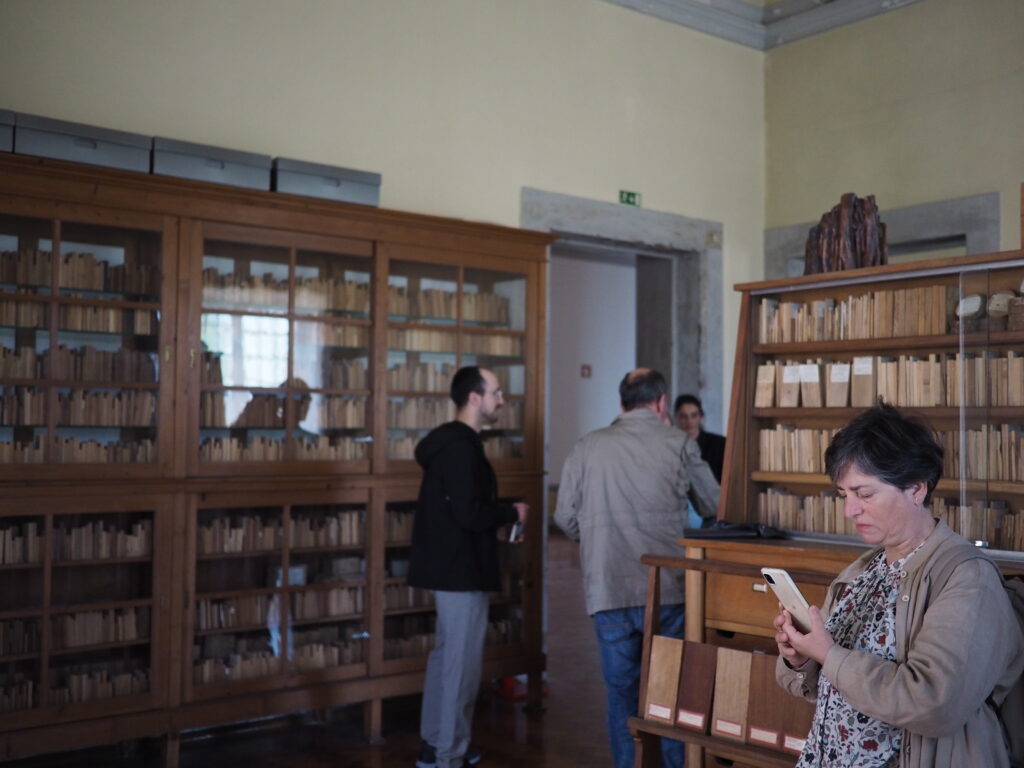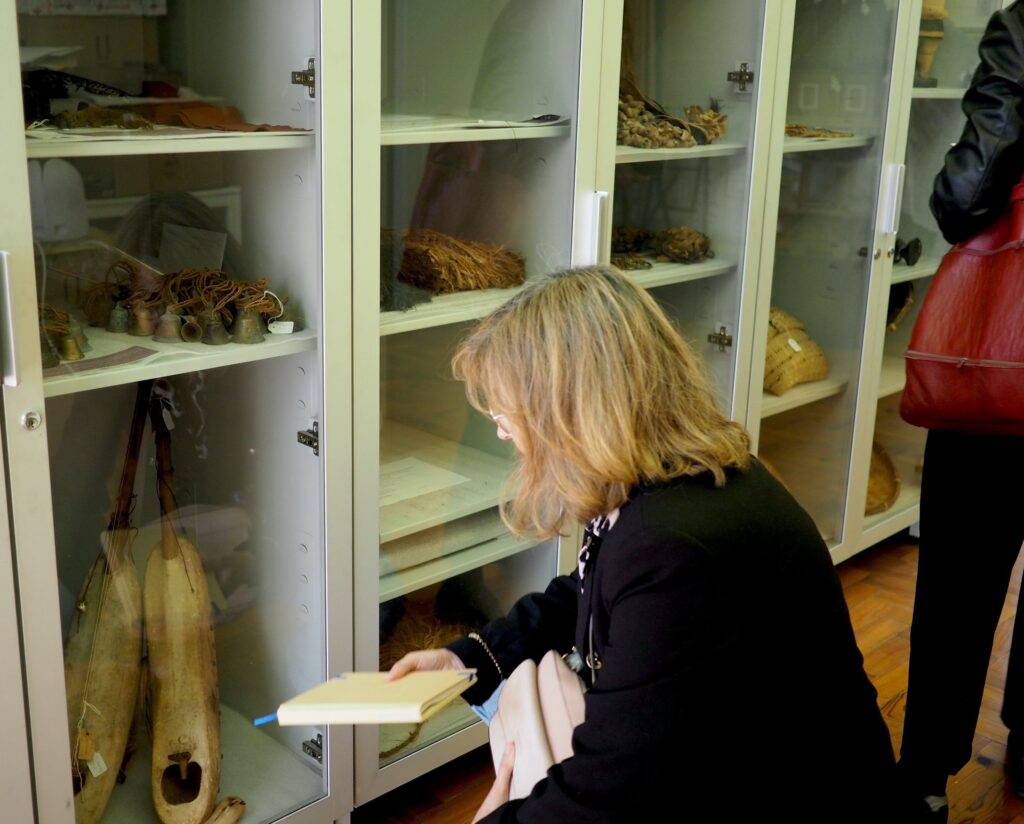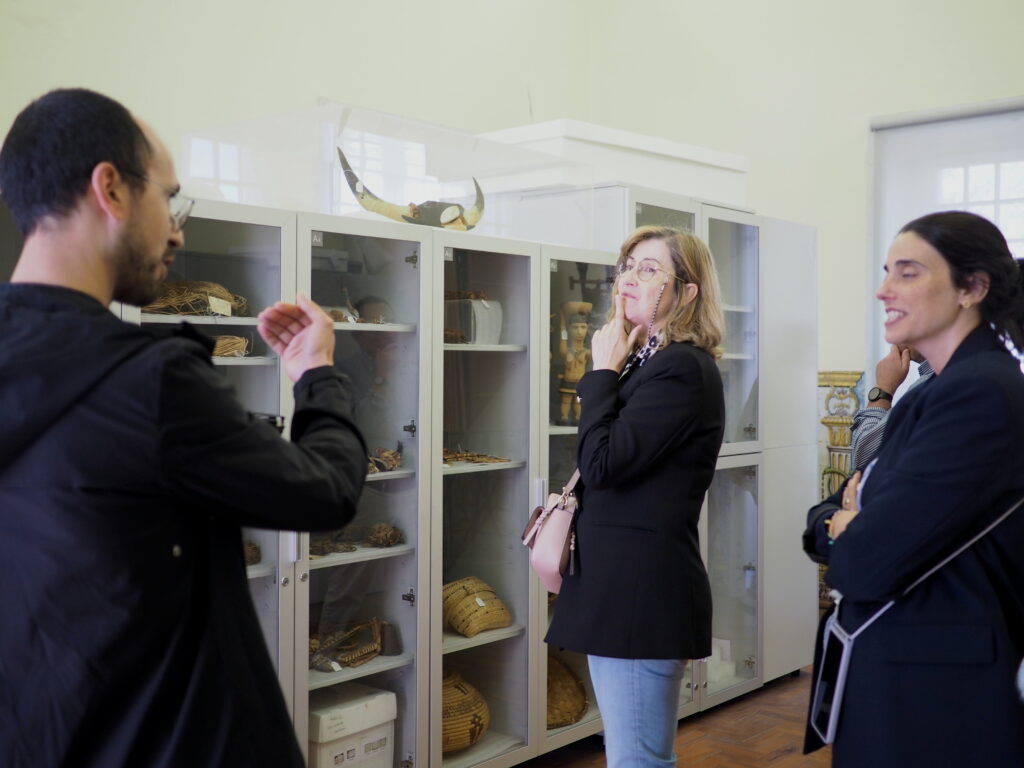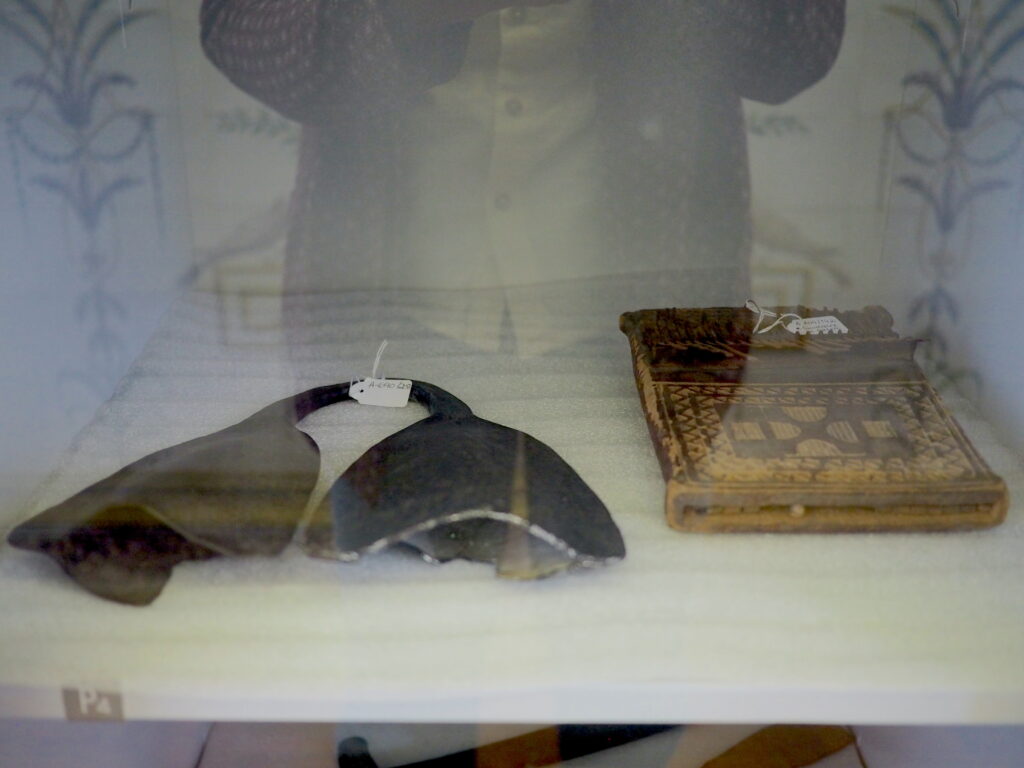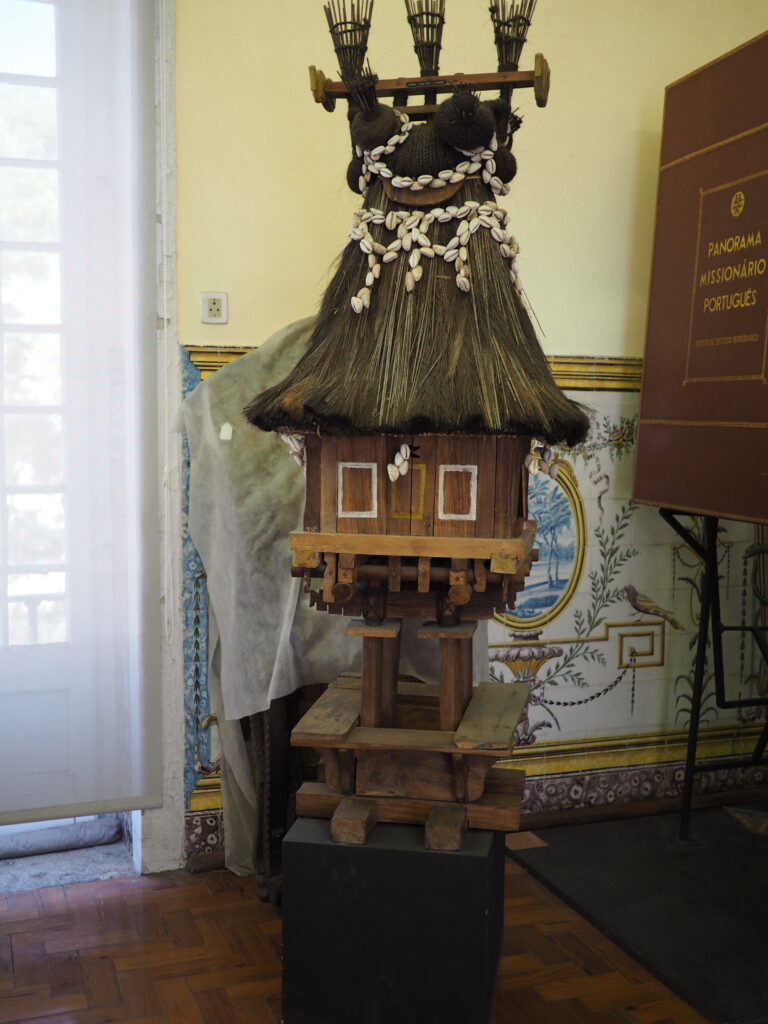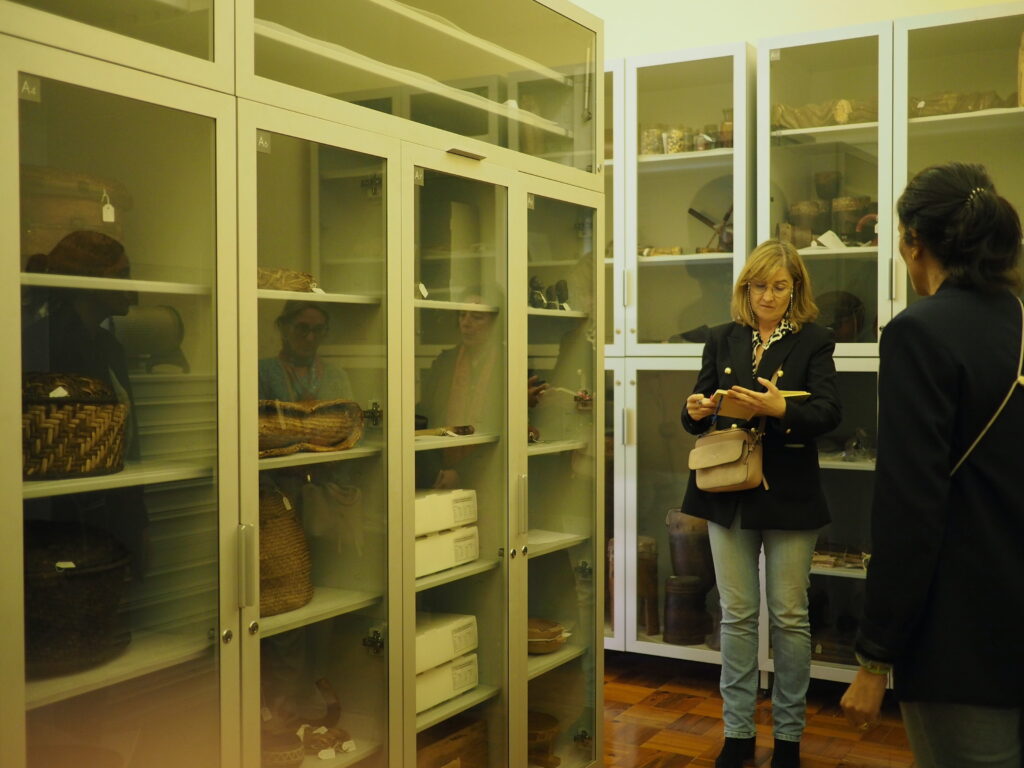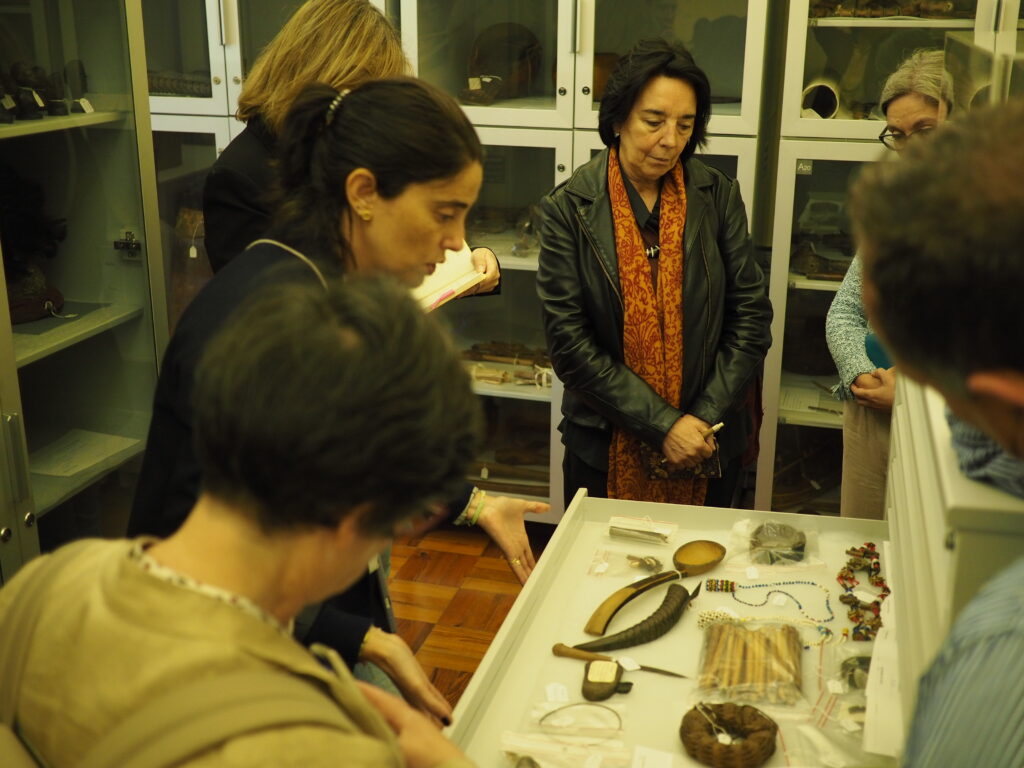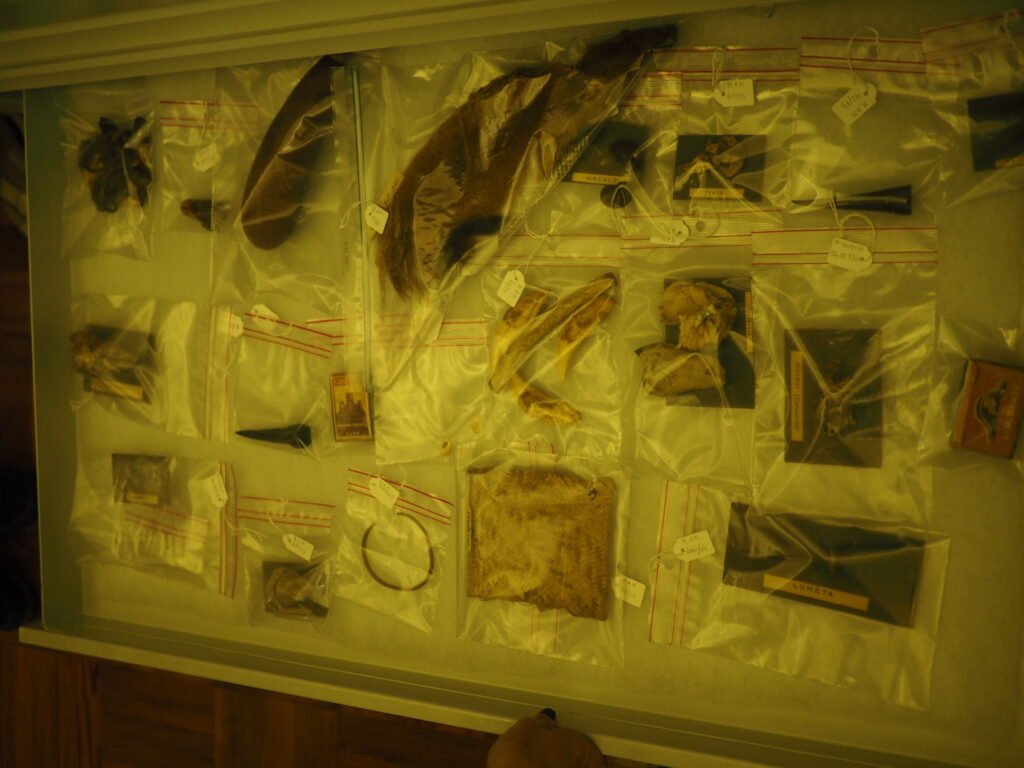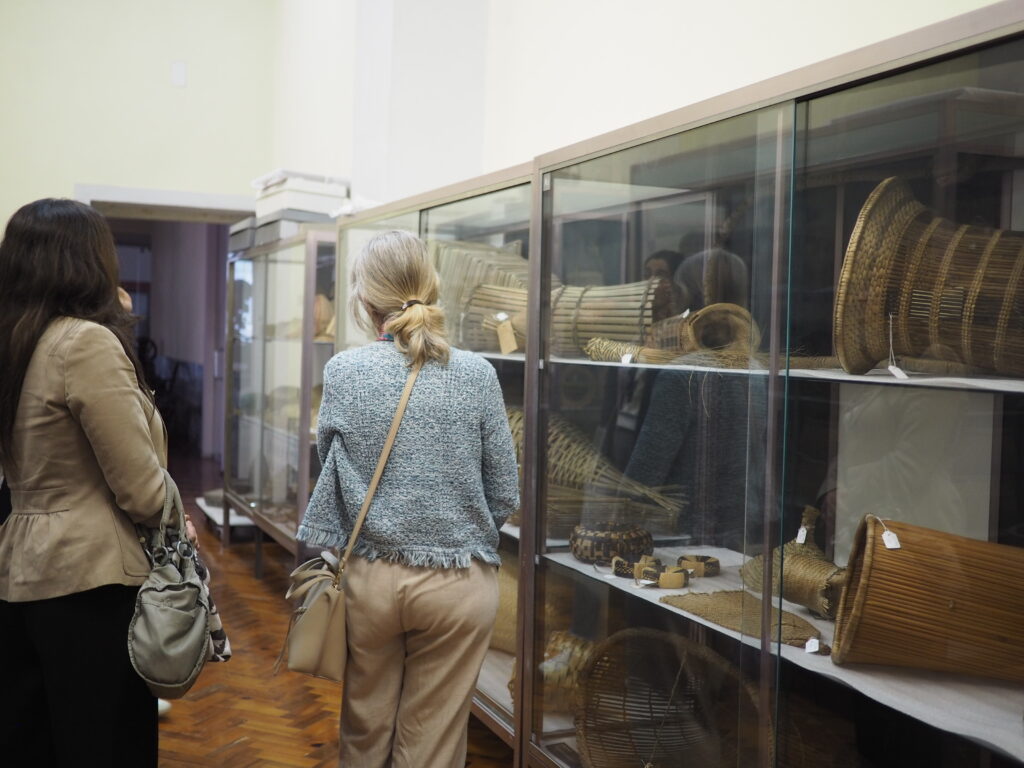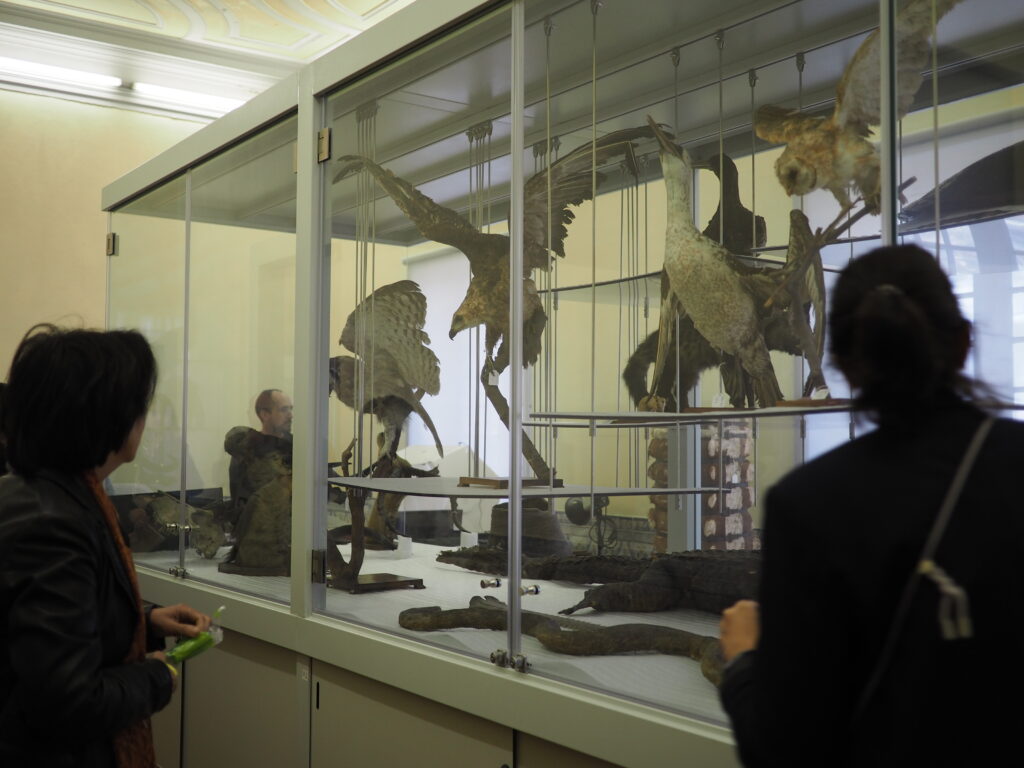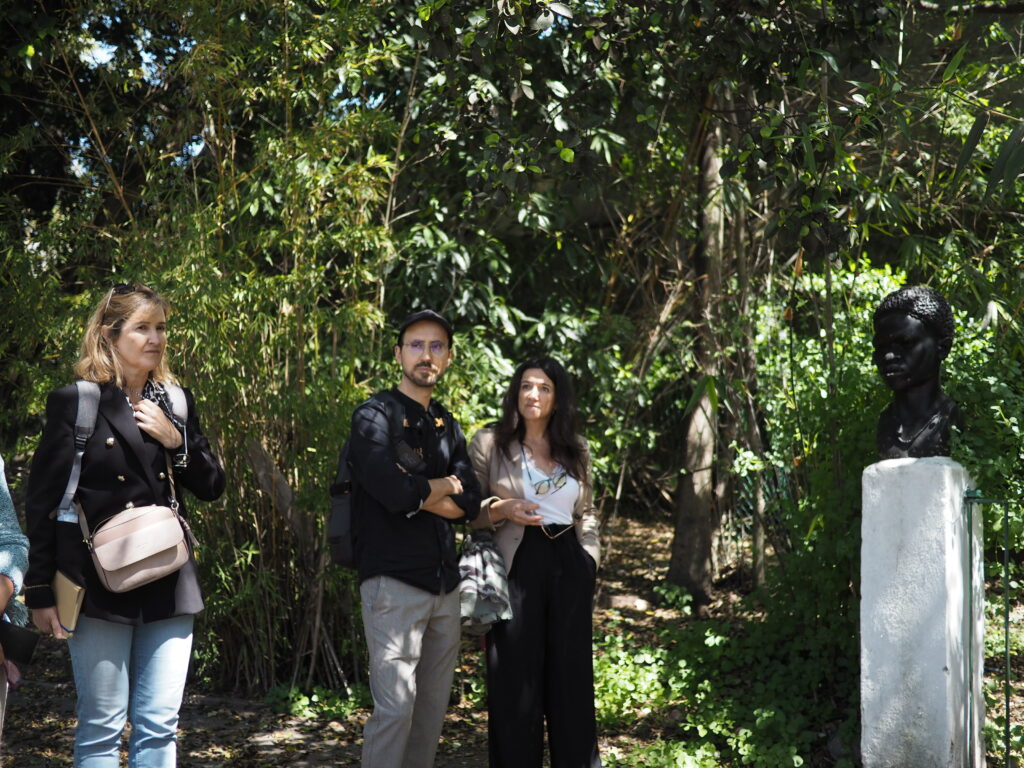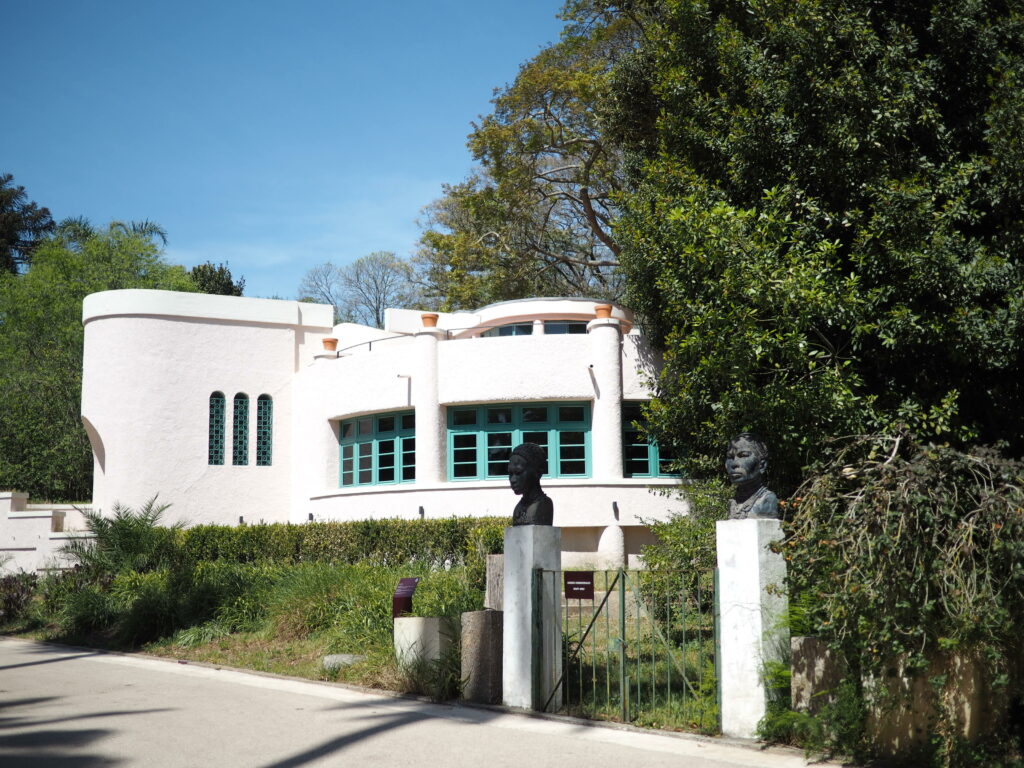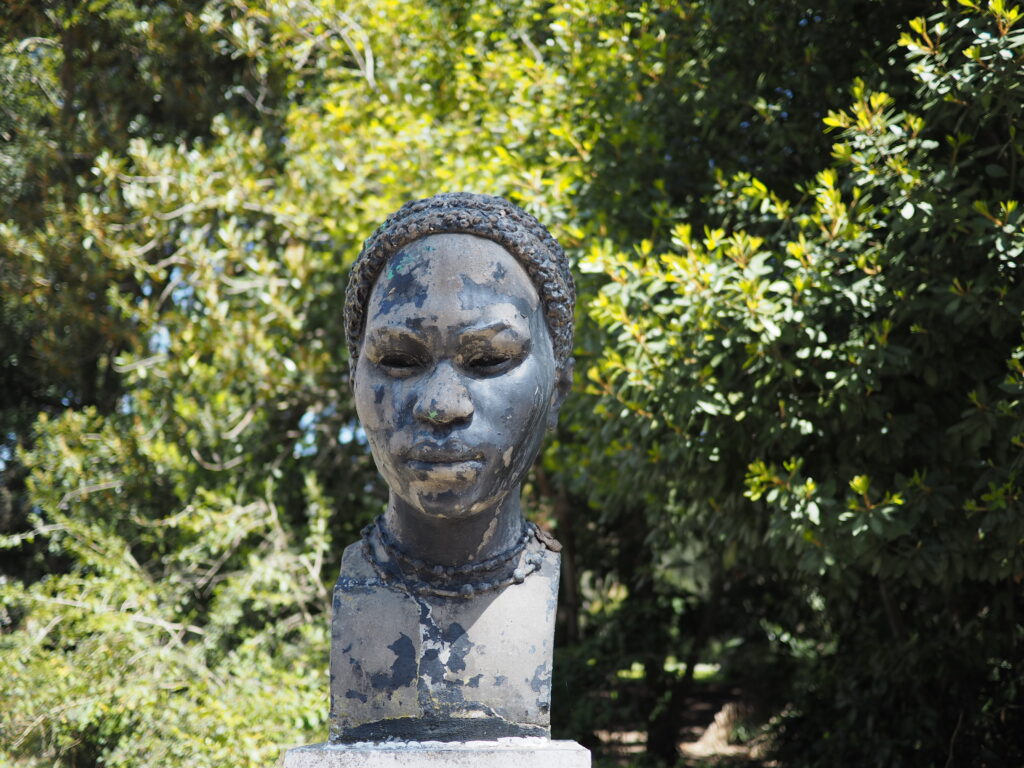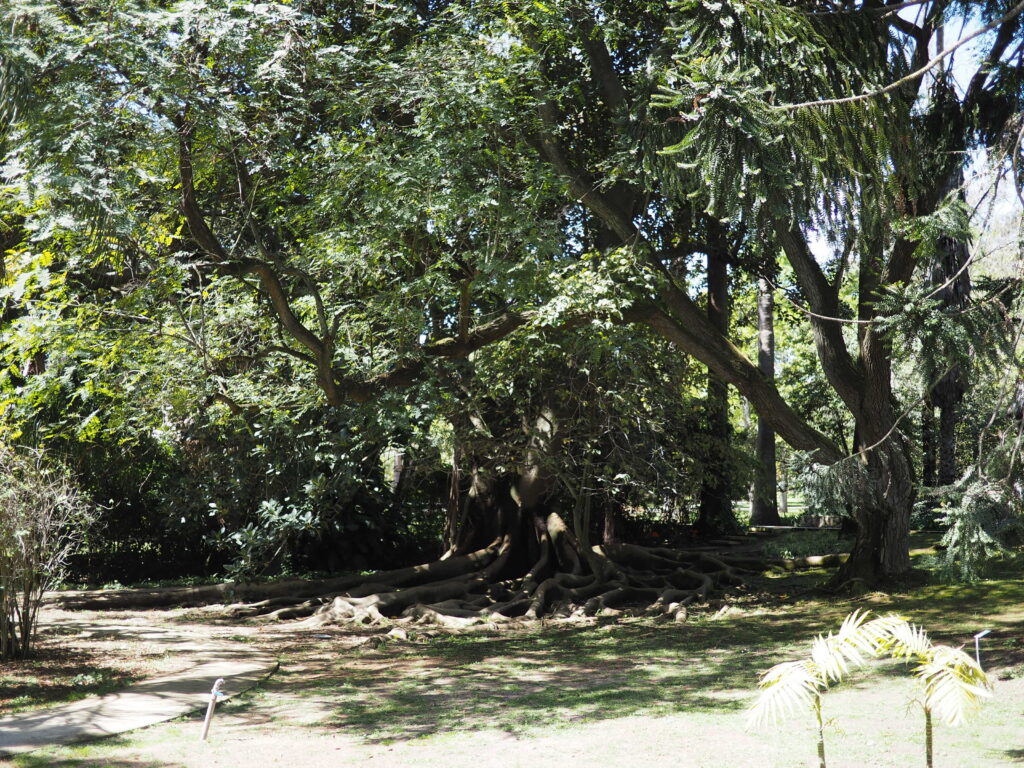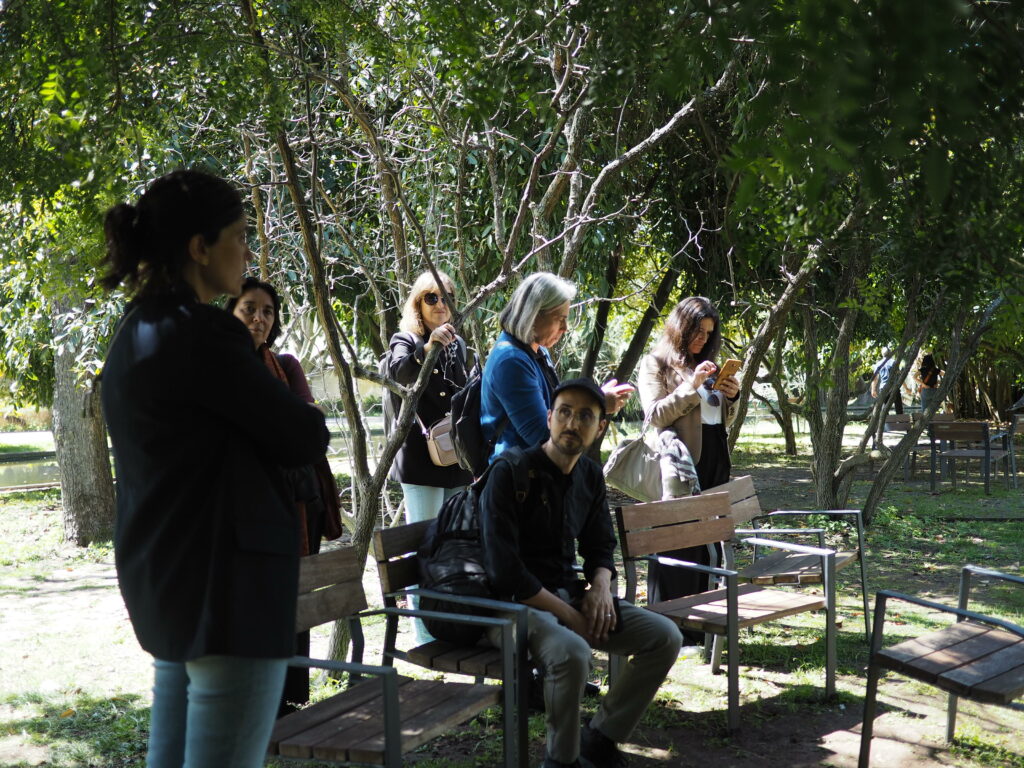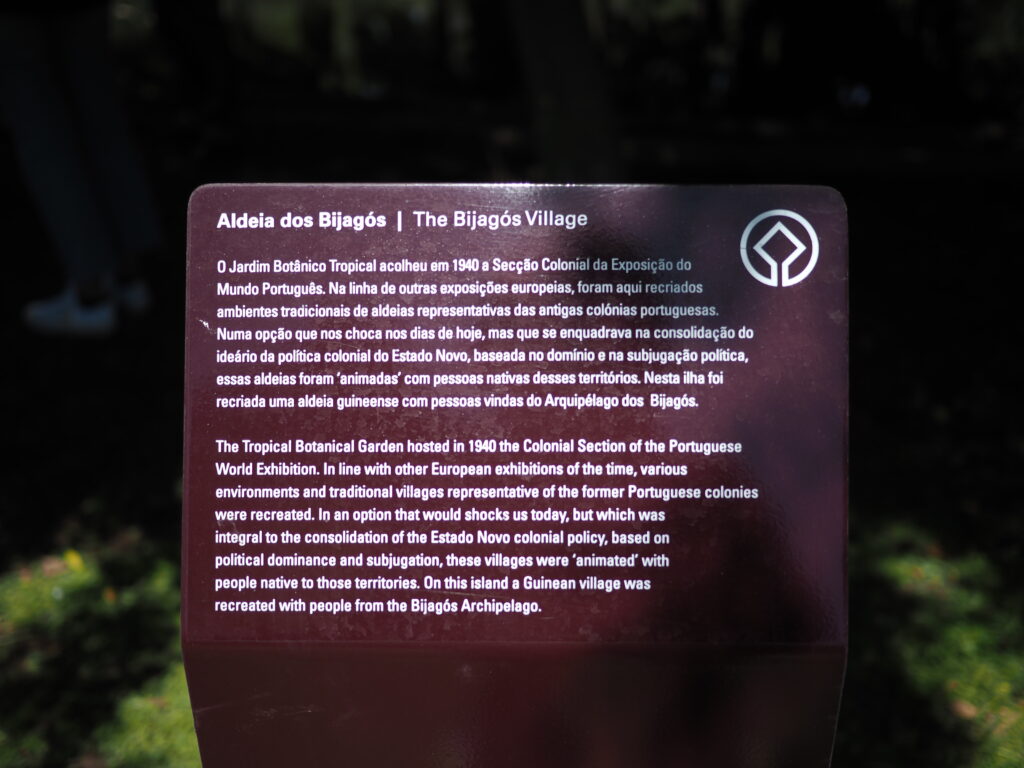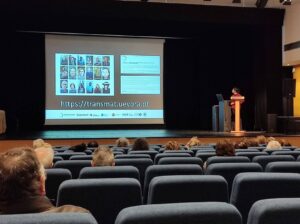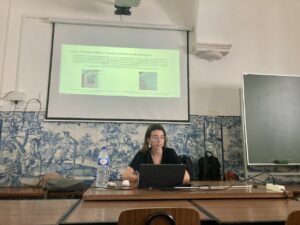Tropical Scientific Research Institute | April 10, 2023
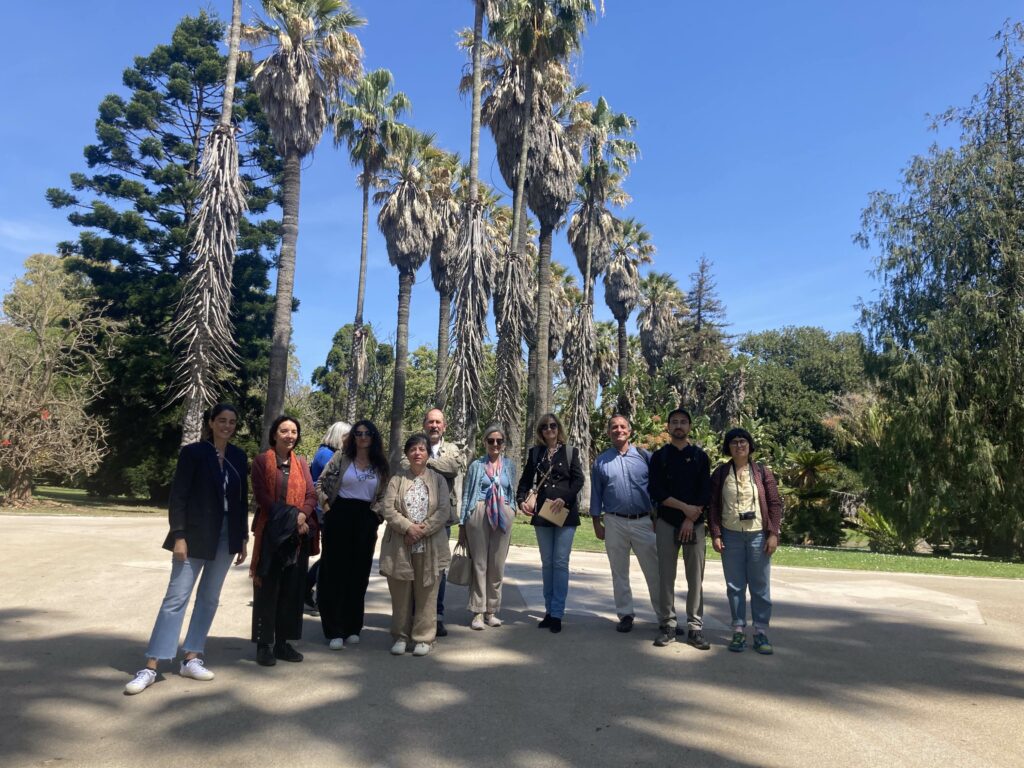
On April 10, 2023, the TRANSMAT team visited the ethnographic collection of the former Tropical Scientific Research Institute (IICT). This reserve collection is currently stored at the Palácio dos Condes da Calheta, which is surrounded by the Tropical Botanical Garden, and it has, in the past few years, been subject to provenance research studies by the team of the Museum of Natural History and Science of the University of Lisbon. The objects share multiple origins (Angola, Mozambique, Cape Verde, Guiné Bissau, Timor), and were incorporated in variegated ways in the collections of the former IICT. The vast majority of these objects was collected in the context of colonial scientific missions, such as the Anthropological Mission of Mozambique, carried out in a series of campaigns from the 1930s to the 1950s, and led by Joaquim Rodrigues dos Santos Júnior, under the guidance of his mentor, A. A. E. Mendes Correia; or the Anthropobiological Mission of Angola, headed by António de Almeida in the 1950s.
The building and garden are testimonies to the complex Portuguese colonial past, having been the stage of several moments that significantly contributed to shape the official and dominant narrative about this part of Portuguese history. The Tropical Botanical Garden was one of the key places of the Portuguese World Exhibition of 1940, a pinnacle of Estado Novo’s colonial propaganda, of which material evidences still exist in this garden. Among these, the collection of busts with stereotypical representations of African peoples, or the bas-relief wooden panels on display in the Palace’s atrium, with colonial scenes of agricultural and fishing activities, are especially relevant.
These spaces and artifacts, from ethnographic objects to the living species that inhabit the garden, currently under the care of the Museum of Natural History and Science, have been studied and reflected upon, in an effort of the Museum to critically address its colonial history, redefining the narratives that are developed and communicated about its heritage.
The visit was guided by the curator of the archaeological and ethnographic collections, Ana Godinho Coelho, and included the Xylotheque of tropical woods, the ethnographic collections and the Tropical Botanical Garden.
